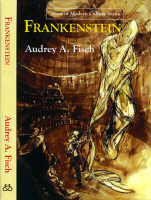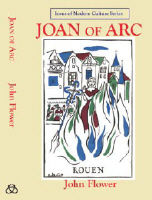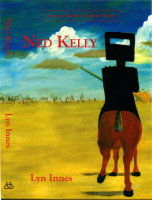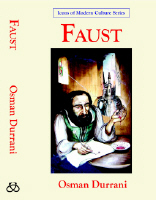HELM INFORMATION |
|||
ICONS OF MODERN CULTURE Every culture has its icons, figures who populate the collective consciousness and provide it with essential points of reference. Any two members of the culture in question might well have different ideas as to what particular figures represent but both will recognise them as items in a common currency. It is in part through the different and sometimes competing meanings we give to the prevailing icons that we organise our knowledge and evince our views of the world. In some instances the birth of an icon is an historical event, one which took place around 1412 in the case of Joan of Arc, for example, but more certainly in 1855 as far as Ned Kelly is concerned. Falstaff’s first appearance in the world is also a matter of historical record but in a very different sense while that of Faust or Robin Hood is far less determinate. As these examples illustrate our icons are a varied band. They come in all shapes and sizes, quite what shape or size depending partly of course on the social or cultural position from which they are viewed, as well as the tastes and temperament of the viewer. Their essential heterogeneity and their vulnerability to private, idiosyncratic appropriation make them difficult to talk about in general, but if they have one characteristic in common it is that they have left their real, literary or mythical origins well behind. They have transcended those origins in order to represent for us qualities we admire or detest, facets of human failure or achievement which it would be uncomfortable to discuss in the abstract. It is through these figures that we often prefer to do our thinking. Close study of history is for the majority of a population esoteric, and however much ‘celebrities’ may temporarily engage public attention everyone is aware that they are fleeting phenomena, that they come and go. Icons on the other hand are deeply embedded. They provide a link with the generations which went before and characterise what we are quite as much as our clothes, our food or our anthems. Each volume in this series describes and above all illustrates the process whereby a certain figure became iconic. It aims to show the different ways that figure has functioned for different interest groups and what role it plays in our culture now. Much of the illustration is literary but attention is also paid to music, painting, photography and film (how people visualise their icons can be as significant as how they write or read about them). A few recent essays of an analytic nature may also be included and the authors of individual volumes will offer their comments on some of the controversial aspects of their subject, but the chief intention is to provide a descriptive context for the of material. In that way readers can watch the sometimes chequered history of an icon develop and see for themselves how the figure concerned came to play such an important role in our common awareness. Available TitlesFrankenstein Audrey A. Fisch (978-13978-1-903206-20-1) The Making of Dr Johnson John Wiltshire (978-1-903206-31-7) Joan of Arc by John Flower (ISBN-13: 978-1-903206-17-1) Ned Kelly by Lyn Innes (ISBN-13: 978-1-903206-16-4) Faust by Osman Durrani (978-1-903206-15-7) That Man Shakespeare by David Ellis (978-1-903206-18-8) Forthcoming Titles Robin Hood by Helen Phillips (978-1-903206-21-8) Falstaff by David Ellis (978-1-903206-19-5) Martin Luther by Peter Macardle (978-1-903206-34-1) Don Quixote by Will McMorran (978-1-903206-33-32-4) |
|||
. |
|||
| HELM
INFORMATION Crowham Manor, Main Road, Westfield, Hastings TN35 4SR Tel: (00 44) (0)1424 882422 Fax: (00 44) (0)1424 882817 email: amandahelm@helm-information.co.uk |
|||





